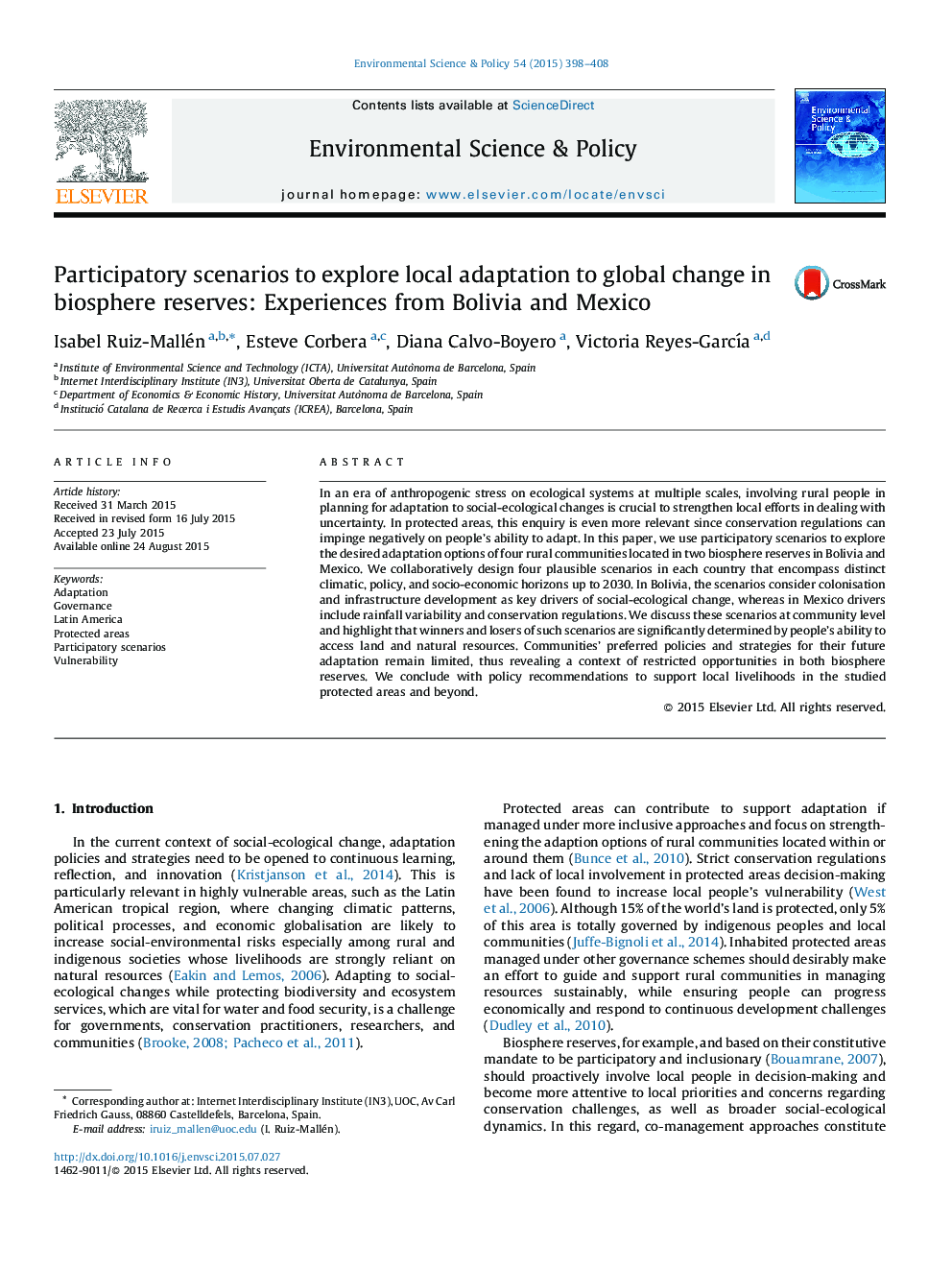| Article ID | Journal | Published Year | Pages | File Type |
|---|---|---|---|---|
| 7467372 | Environmental Science & Policy | 2015 | 11 Pages |
Abstract
In an era of anthropogenic stress on ecological systems at multiple scales, involving rural people in planning for adaptation to social-ecological changes is crucial to strengthen local efforts in dealing with uncertainty. In protected areas, this enquiry is even more relevant since conservation regulations can impinge negatively on people's ability to adapt. In this paper, we use participatory scenarios to explore the desired adaptation options of four rural communities located in two biosphere reserves in Bolivia and Mexico. We collaboratively design four plausible scenarios in each country that encompass distinct climatic, policy, and socio-economic horizons up to 2030. In Bolivia, the scenarios consider colonisation and infrastructure development as key drivers of social-ecological change, whereas in Mexico drivers include rainfall variability and conservation regulations. We discuss these scenarios at community level and highlight that winners and losers of such scenarios are significantly determined by people's ability to access land and natural resources. Communities' preferred policies and strategies for their future adaptation remain limited, thus revealing a context of restricted opportunities in both biosphere reserves. We conclude with policy recommendations to support local livelihoods in the studied protected areas and beyond.
Related Topics
Physical Sciences and Engineering
Energy
Renewable Energy, Sustainability and the Environment
Authors
Isabel Ruiz-Mallén, Esteve Corbera, Diana Calvo-Boyero, Victoria Reyes-GarcÃa,
